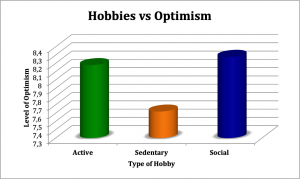Voltaire is one of the first Europeans to have been called a pessimist, and his Candide (1759) is a well-know satire of an optimist who naively believes that “all is for the best in the best of all possible worlds”.
Voltaire also famously claimed that “Optimism is the madness of insisting that all is well when we are miserable”.
Fast-forward three centuries, and it turns out that Voltaire – along with any modern-age cynic – could have had a better, healthier life had he been a little more optimistic.
Since the foundation of Positive Psychology by Martin Seligman in 1998 – the branch of psychology concerned with people’s strengths, happiness and optimism, and revolving around the study of PERMA, namely positive motions and relationships, engagement, meaning and accomplishment – research on the benefits of practicing optimisms has skyrocketed.
It may sound too good to be true, but optimistic people are proven to benefit from a stronger immune system and cardiovascular health, and also have a lower risk of developing cancer. On the other hand, highly pessimistic people tend to suffer from depression more regularly, they underachieve in their professional lives, and their relationships are more often than not rocky (Seligman 2011).
Research we recently carried out in the contact centre of a prominent UK Government Agency shows how hobbies influence the optimism of call handlers. It emerged that people with social and active pastimes display higher levels of optimism than those with sedentary interests.
Our results support those obtained from other studies that throw light on the reasons why optimists enjoy better mental and physical health. The two main reasons for this are that they are able to count on a stable social support network and they have a healthy lifestyle (Seligman 2011).
So not only do contact centre advisors with social hobbies have a more collaborative approach to resolving conflict situations (see “The Other Side of Hobbies”, 1 February 2018), but they are also intrinsically more optimistic – two ideal features in customer service roles.
These conclusions support the trend that many companies now encourage their employees to join social and wellbeing activities – often for discounted prices.
References
Martin Seligman, Flourish: A New Understanding of Happiness and Well-being, and How to Achieve Them (2011)


